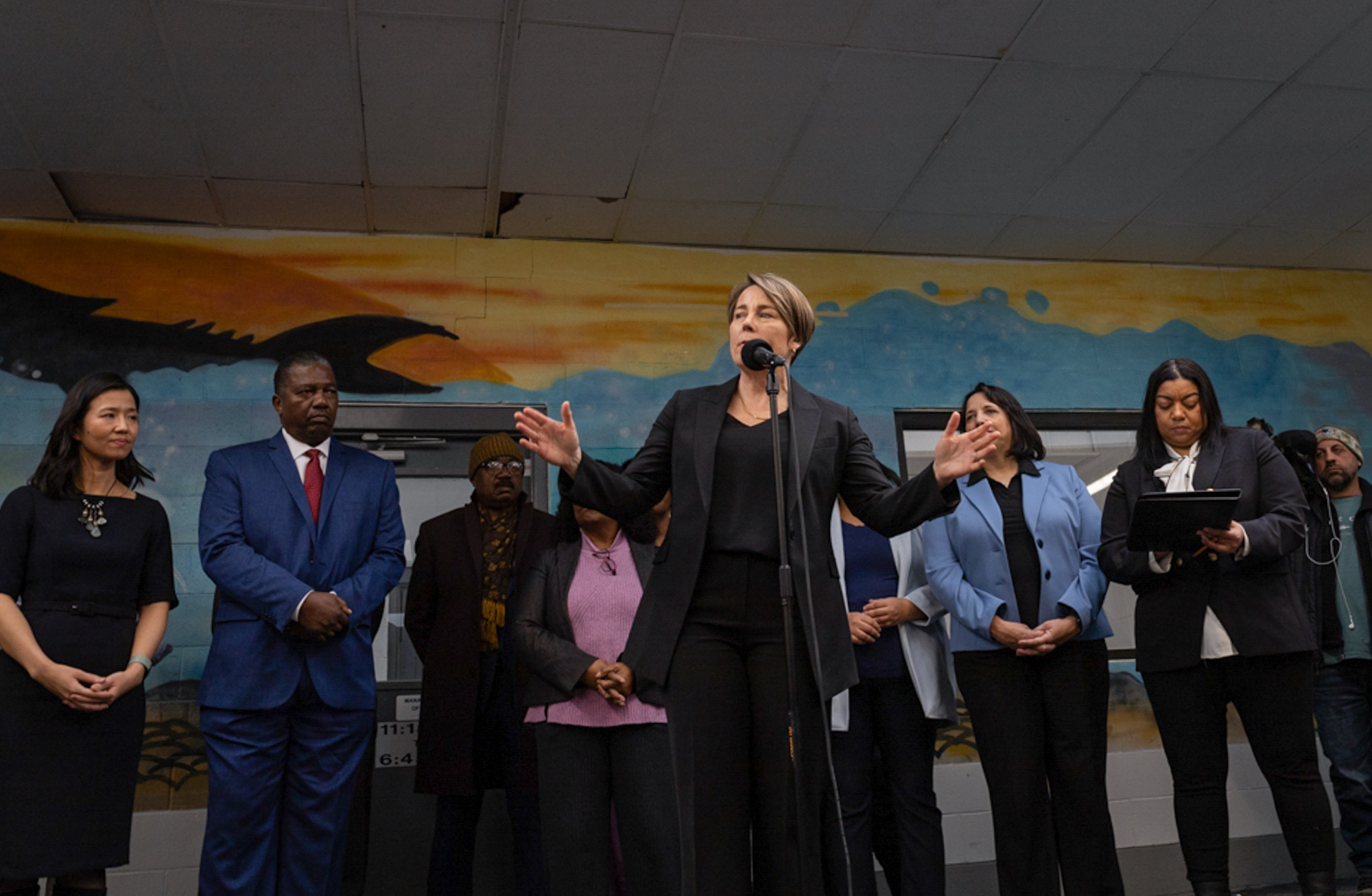The Healey-Driscoll administration announced a comprehensive housing plan Feb. 6 to address a decades-long housing crisis in Massachusetts, pledging to build 222,000 new housing units by 2035.

“A Home For Everyone” intends to address a lack of affordable housing and an increased cost of living and complex housing needs, according to the report released by Governor Maura Healey, Lieutenant Governor Kim Driscoll and Edward M. Augustus, Jr., Secretary of the Executive Office of Housing & Livable Communities.
“It’s a very holistic look at what we need to move forward,” said Jenna Connolly, director of communications and events at the Citizens’ Housing & Planning Association. “It doesn’t just focus on one part of the industry. It really just lays out like this is everything we need in order to have the future we want for Massachusetts.”
The Commonwealth has struggled to produce sufficient housing for decades, said Connolly, so building new houses is important.
Andrew McKenzie-DeFranza, president of CHAPA and executive director of Harborlight Homes, a community development organization in Mass. that advocates for affordable housing policies, said he observed ongoing housing difficulties in the state.
“You see it in the homelessness numbers, you see it in the costs of rents, you see it in the inability of employers to hire or retain and you see it in the challenges for the elderly and disabled,” McKenzie-DeFranza said. “We are an outlier over the last 40 years in terms of our production of housing against other states.”
According to the housing plan, these issues are faced by people all over Massachusetts, regardless of income level.
“People used to think, ‘Only people who dont make too much money can’t afford it,’” Connolly said. “When really, it’s everyone, it’s affecting everyone… It’s reaching further and further up.”
According to the Housing Needs Assessment, a separate document published as a companion to the plan, all income groups have seen a rise in the number of households that pay more than 30% of their income on their homes.
Greg Reibman, president and CEO of the Charles River Regional Chamber, a nonprofit which helps businesses and nonprofits in Massachusetts succeed economically, said housing complications have taken a toll on the economy, with an observable effect on countless industries throughout the state.
“It has really made it very difficult for our businesses to grow and thrive,” Reibman said. “We’ve all seen and heard about long waits in emergency rooms because there’s not enough staffing or long waits to get an appointment with a doctor.”
Additionally, the elderly and those with disabilities have struggled to find sufficient housing due to accessibility and income issues.
There are approximately 650,000 households in Massachusetts where at least one member has a disability, whether this be ambulatory, cognitive, vision or several others, according to the Needs Assessment.
McKenzie-DeFranza raised concerns about certain aspects stated in the plan, such as the prioritization of sustainability when building new homes.
“I’m a little worried about the pace of some of the sustainability elements, though I support the goal and understand why we would do that,” McKenzie-DeFranza said. “But I’m a little worried based on the track records of the utility companies, that that could get very difficult to implement.”
Reibman said the issues Massachusetts constituents are facing with housing can be remedied with the combined efforts of citizens and businesses.
“There’s no one solution to fixing this,” Reibman said. “We need cities and towns to do more to make it easier.”


















































































































